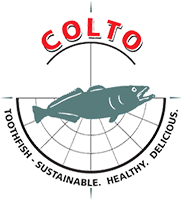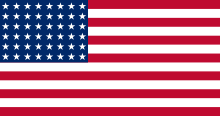WASHINGTON — The Obama administration announced plans on Monday to step up the fight against illegal fishing, pollution and other crimes at sea, including the creation of two new national marine sanctuaries, one in Maryland and the other in Lake Michigan, the first in 15 years.
Administration officials also said they intended to expand the use of satellites that track illegal activity by detecting night lights used by fishermen to attract fish, and committed to better track all seafood that enters American ports.
“Our economies, our livelihoods and our food all depend on our oceans,” President Obama said in a videotaped message presented at the second annual Our Ocean conference held in Valparaíso, Chile. “And yet we know that our actions are changing them.”
Chilean officials said they intended to cordon off more than 200,000 square miles of the Pacific Ocean near Easter Island from commercial fishing and oil and gas exploration.
Emphasizing the urgency of the crisis, Secretary of State John Kerry told the conference that the sea was acidifying 10 times faster than at any other point in history, and that one-third of the world’s fish stocks were overexploited.
“There’s a direct line between black-market fishing, black-market drugs, smuggling and human trafficking,” Mr. Kerry said. “And people need to focus in on that intently.”
In interviews last month and on Monday, Mr. Kerry elaborated on the administration’s vision for better protecting the oceans. Pointing out that at least $10 billion is lost globally each year because of illegal fishing, Mr. Kerry said countries had to do more to police their waters. The biggest challenge to protecting the world’s oceans, he said, is not writing new rules or declaring new areas off-limits to commercial activity, but enforcement.
As an example, he cited the case of the Thunder, a ship that had topped Interpol’s most-wanted list for more than $60 million worth of illegal fishing.
No government had been willing to dedicate the personnel and millions of dollars needed to find and arrest the ship. Last year, however, a vigilante environmental group, Sea Shepherd, spotted the Thunder fishing in Antarctic waters and pursued it for 110 days across more than 10,000 miles in an epic chase, the longest in history.
The chase of the Thunder showed that there are “millions of square miles of oceans that are unregulated and that you have unscrupulous people who are chasing the money,” Mr. Kerry said. The responsibility of pursuing pirate ships cannot be left to environmental groups, he added, referencing a New York Times article about the Thunder.
The chase ended in April when the ship sank, possibly on purpose to dispose of evidence, in the waters off the West African island state of São Tomé and Príncipe. The ship’s captain and two crew members, who have been detained in São Tomé and Príncipe since the sinking, have been tried for environmental and maritime crimes. A verdict in the case is expected this week.
The Thunder’s prime catch was toothfish, more popularly called Chilean sea bass, known on docks as “white gold” because its fillets often sell for $30 a plate or more in upscale restaurants in the United States.
“We’re a tiny country with huge waters around us and limited resources,” said Frederique Samba Viegas D’Abreu, the attorney general of São Tomé and Príncipe, adding that this case was among the most expensive in his country’s history.
In late September, another toothfish vessel that had been wanted by Interpol, chased by Sea Shepherd and detained in Thailand escaped port and disappeared on the high seas. Thai port authorities say they are investigating how the ship got away and what sort of crew was aboard.
One important step, Mr. Kerry said, will be for countries to help shrink the market for illegal seafood by tougher enforcement at the ports. In April 2014 the Senate ratified the international Port State Measures Agreement, which empowers port officials to prohibit foreign vessels suspected of illegal fishing from receiving port services and access. The European Union and 12 other nations have ratified the agreement, but a total of 25 nations must sign before the treaty will take effect.
Mr. Kerry said he hoped to see the House move forward with the measure, which, he said, has been bogged down by questions over whether it would put American fishermen at a disadvantage if the United States were to enforce it while other nations did not.
He added that he had also advocated stronger chain-of-custody rules so that American consumers could better trace the seafood they consume, 90 percent of which is imported. Later this month, he said, fishery authorities will begin tracing from harvest to port several marine species — including shrimp, cod and tuna — with the hope of tracing all seafood entering the country by 2017.
The role of the marketplace in countering crimes at sea was also the focus of a briefing for the Senate Caucus to End Human Trafficking last week. “The outlaw ocean results from a void of jurisdiction,” Robert Stumberg, a Georgetown University law professor, told the group. “But the U.S. government has the purchasing power to lead by example.”
Mr. Stumberg analyzed $300 million worth of American government purchases of fishery products, including frozen shrimp, canned tuna and livestock feed, which he said were most likely to be produced by slave labor. The biggest barrier to determining which federal contracts are most directly tied to sea slaves, he said, is the lack of specificity in the federal database.
“Congress passed the Transparency Act in 2006,” he said during the hearing. “But we’re still waiting for the online database, USAspending.gov, to reveal where goods come from.”
In recent years, there has been growing international attention on forced labor on the South China Sea, including from advocacy groups like the Environmental Justice Foundation and Greenpeace, and news media outlets like The Guardian, Al Jazeera and The Associated Press.
The State Department has cautiously supported foreign efforts, like that of Indonesia, to counter illegal fishing. As part of a larger, nationalistic policy by the new government in Jakarta to exert its maritime authority, the country’s marine affairs and fisheries minister, Susi Pudjiastuti, last year declared a moratorium on new fishing licenses and sharply stepped up the country’s longstanding practice of sinking illegal foreign vessels caught in Indonesian waters. “In tackling illegal fishing we are fighting human trafficking,” Ms. Susi said in an interview.
Mr. Kerry said that before reading a Times article about sea slavery, he “hadn’t put two and two together in the network in terms of the trafficking piece and the illegal fishing piece.”
Mr. Kerry said he hoped to broaden oversight of seafood as it enters American ports to account not just for environmental crimes but labor concerns too. Port or fishery authorities responsible for reviewing imported seafood need to have not only “an understanding of the fishing chain, but also some sort of sign off or seal of approval as to what the conditions were in which it was fished,” he said.
-from NYtimes.com

